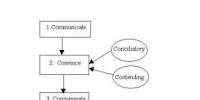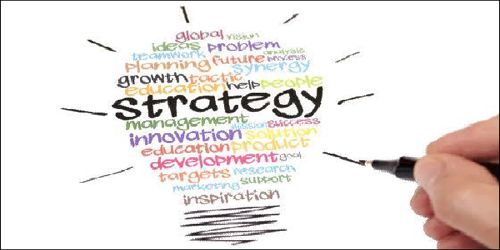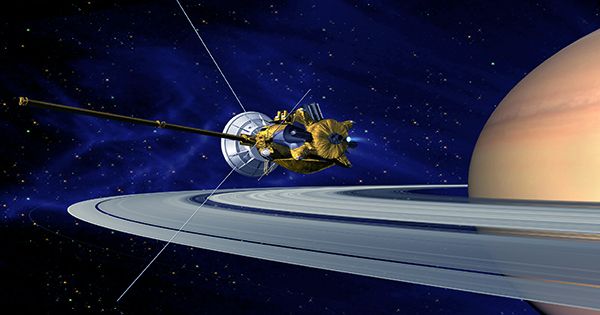According to research from the Rady School of Management at the University of California, San Diego, teams that expressed thanks to one another before completing a stressful assignment showed stronger cardiovascular responses than teams that did not.
The improved cardiovascular response causes people to be more focused and self-assured, enabling them to perform at their best. Although it is well known that showing appreciation improves marriages and other close relationships, the study is the first to demonstrate that it also has positive effects on those in looser connections, such as coworkers.
It is also the first to demonstrate that feeling grateful increases biological resources, improving stress responses, and can have long-term health effects in addition to enhancing performance under pressure. Stress is connected to immune system weakness, cognitive decline, and cardiovascular disease when it occurs frequently.
“Our results have meaningful implications for organizations and particularly for employees who work together under acutely stressful conditions to accomplish joint goals,” said Christopher Oveis, senior author of the forthcoming study to be published in Journal of Experimental Psychology: General and associate professor of economics and strategy at the Rady School of Management.
The experiment that produced the study’s findings required 200 individuals to engage in a game that was modeled after the television program “Shark Tank.” In order to simulate relationships between coworkers who are not close personally but who spend a lot of time together at work, the participants were UC San Diego undergraduates who were matched in teams with their suitemates.
Some people really rise to the challenge and have an efficient cardiovascular response known as a challenge response: The heart pumps out more blood, the vasculature dilates, blood gets to the periphery, oxygenated blood gets to the brain and cognition fires on all cylinders. But other people don’t fare as well and instead have a threat response: The heart pumps out less blood, the vasculature constricts, blood flow to periphery is reduced and performance goes down.
Christopher Oveis
The teams had six minutes to brainstorm a pitch for designing and marketing a bicycle that students could use on campus. They also had six minutes to present their product and marketing strategy in front of a panel of judges. The winning group received $200.
“It’s essentially an impossible task,” said Oveis. “The experiment is designed to create a maximally stressful environment so we can gauge how gratitude shapes stress response during teamwork because most people spend a third or more of their daily lives at work.”
Participants wore electrodes on their necks and torsos to gather electrocardiography (ECG) and impedance cardiography (ICG) signals in order to measure physiological responses. Additionally, respondents’ blood pressure was tracked using a blood pressure cuff that was worn on their arms.
The biological reactions of teams that thanked each other during the competition were compared to those of teams who did not, on a select group of teams who were randomly assigned to do so.
“In a high-stakes, motivated performance task, people can react in one of two ways at a biological level,” said Oveis.
“Some people really rise to the challenge and have an efficient cardiovascular response known as a challenge response: The heart pumps out more blood, the vasculature dilates, blood gets to the periphery, oxygenated blood gets to the brain and cognition fires on all cylinders. But other people don’t fare as well and instead have a threat response: The heart pumps out less blood, the vasculature constricts, blood flow to periphery is reduced and performance goes down.”
However, the study discovered that even a single, one to two-minute act of thankfulness from one colleague to another encouraged those teammates to respond to biological challenges in a more adaptable, performance-oriented manner.
Gratitude expressions play a fundamental role in strengthening relationships
The cardiovascular reactions of research participants to stress were examined both individually and in groups by Oveis and co-authors. During the collaborative portion of the experiment, while they were developing the bicycle and coming up with a marketing strategy, both team members were observed.
Additionally, people were watched when one of the team members had to present their idea to the judges without looking or speaking to the other team member. Control teams showed signs of threat during the cooperative task, including increased vascular constriction and decreased blood flow.
However, these danger reactions were abolished by expressing thankfulness simply before the assignment. Control teams displayed mild challenge responses throughout the individual product pitches, including vascular dilatation and increased peripheral blood flow.
The challenge replies from teams who expressed gratitude, however, were substantially bigger and more magnified, which improved their performance.
“Gratitude expressions within work environments may be key to managing our day-to-day stress responses as well optimizing our how we respond during high-pressure performance tasks like product pitches, so that we can make our stress responses fuel performance instead of harm it,” said Oveis. “But at their core, gratitude expressions play a fundamental role in strengthening our relationships at work.”
















